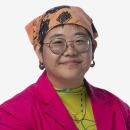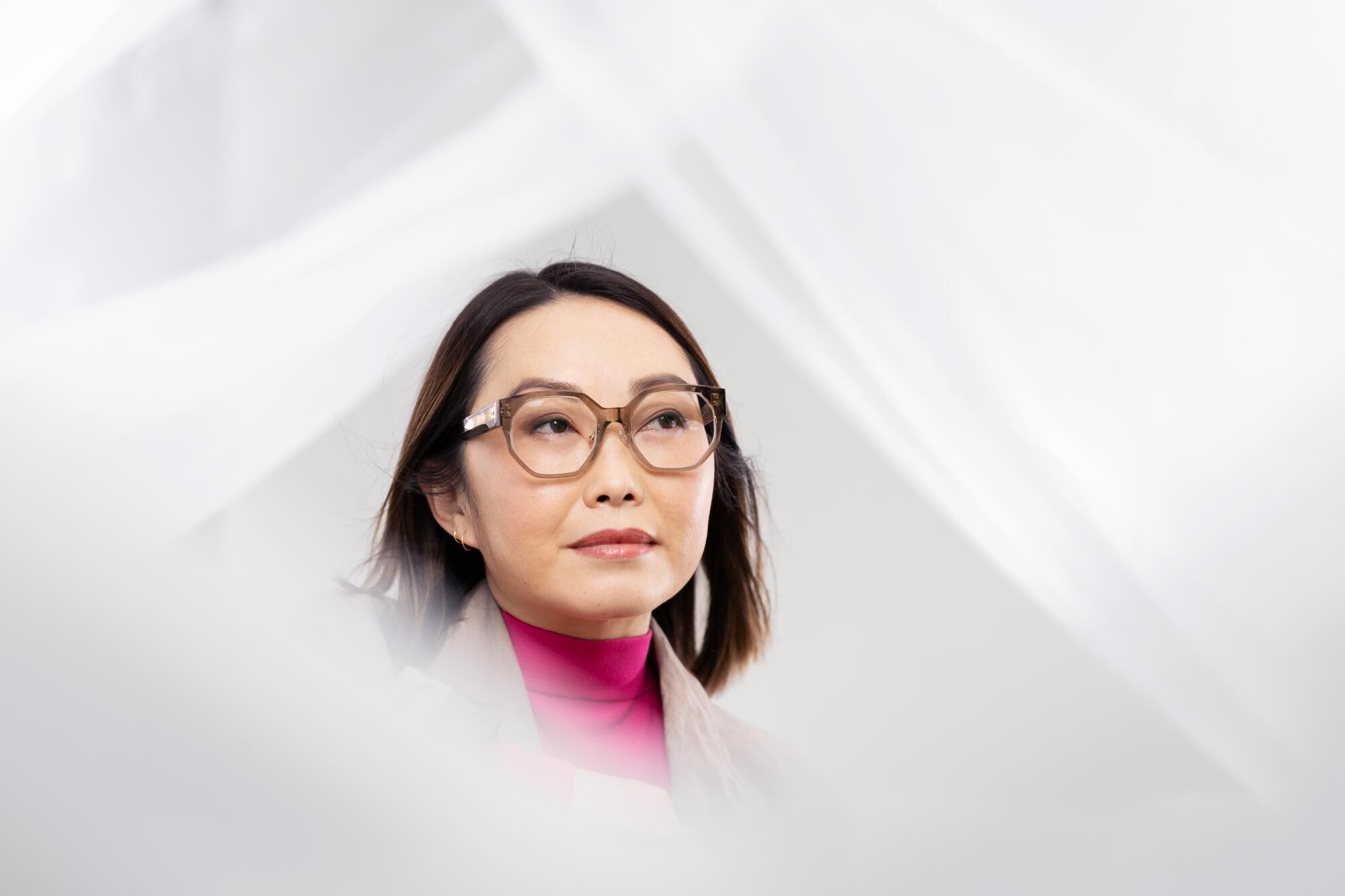
- Share via
I still remember ugly crying after watching Lulu Wang’s breakthrough feature, “The Farewell,” with my dad, an immigrant.
I saw myself in Billi, a Chinese American woman trying to make sense of her bicultural identity as she wrestles with a family secret — her grandmother, Nai Nai, is about to die, and everyone knows except her. “The Farewell” was an ambitious project; there are few U.S. films with an all-Asian cast where much of the dialogue is not in English. But Wang stuck with the integrity of her story and that bet paid off.
Wang’s work caught the attention of one of Hollywood’s biggest stars, Nicole Kidman; her production company, Blossom Films, optioned Janice Y. K. Lee’s New York Times bestseller, “The Expatriates,” and she was looking for someone to adapt it. They connected and Wang was eventually brought on board to write and direct on “Expats,” a six-part limited series premiering Friday on Prime Video.
When I meet with Wang in the restaurant of the London Hotel in West Hollywood, it’s just weeks out from the premiere of the series. Moving from the critical success of “The Farewell” to “Expats” has brought Wang a new weight of responsibility, but she carries it with a sense of duty.
“The Farewell” filmmaker Lulu Wang talks supporting other female directors and her campaign to get N95 masks and more PPE to doctors and nurses treating coronavirus.
“In ‘The Farewell,’ the fears that I had were, ‘Am I properly representing my family?’” Wang says. “This felt the same thing, but on a much larger scale because now my family was in the city of Hong Kong.”
I intentionally wear my green bok choy earrings for the interview because, after watching the series, I think that if there’s anyone who can appreciate how nostalgia romanticizes the simplest of objects, it’s Wang. Plus, it’s not every day that you get to meet the director that inspired you to become a filmmaker.
Wang’s face is framed by sombré bleached hair, and she’s dressed in an erudite all-black outfit with gold accents and wide-rimmed glasses. As she sips her tea across from me, I don’t sense any of the trepidation she mentions, but more of like the calm anticipation of someone who is ready to unveil their canvas. She’s ready for the work to speak for itself.
Since 2020, Wang has labored on “Expats,” which delves into the lives of three American women living abroad in Hong Kong and examines how their lives intersect within the city’s international community. The premise is centered on a missing child and the grief and shame that follows affluent mother Margaret (Kidman), her best friend Hilary (Sarayu Blue) and Mercy (Ji-young Yoo), a Korean American woman from Queens, N.Y., who is a recent college graduate.
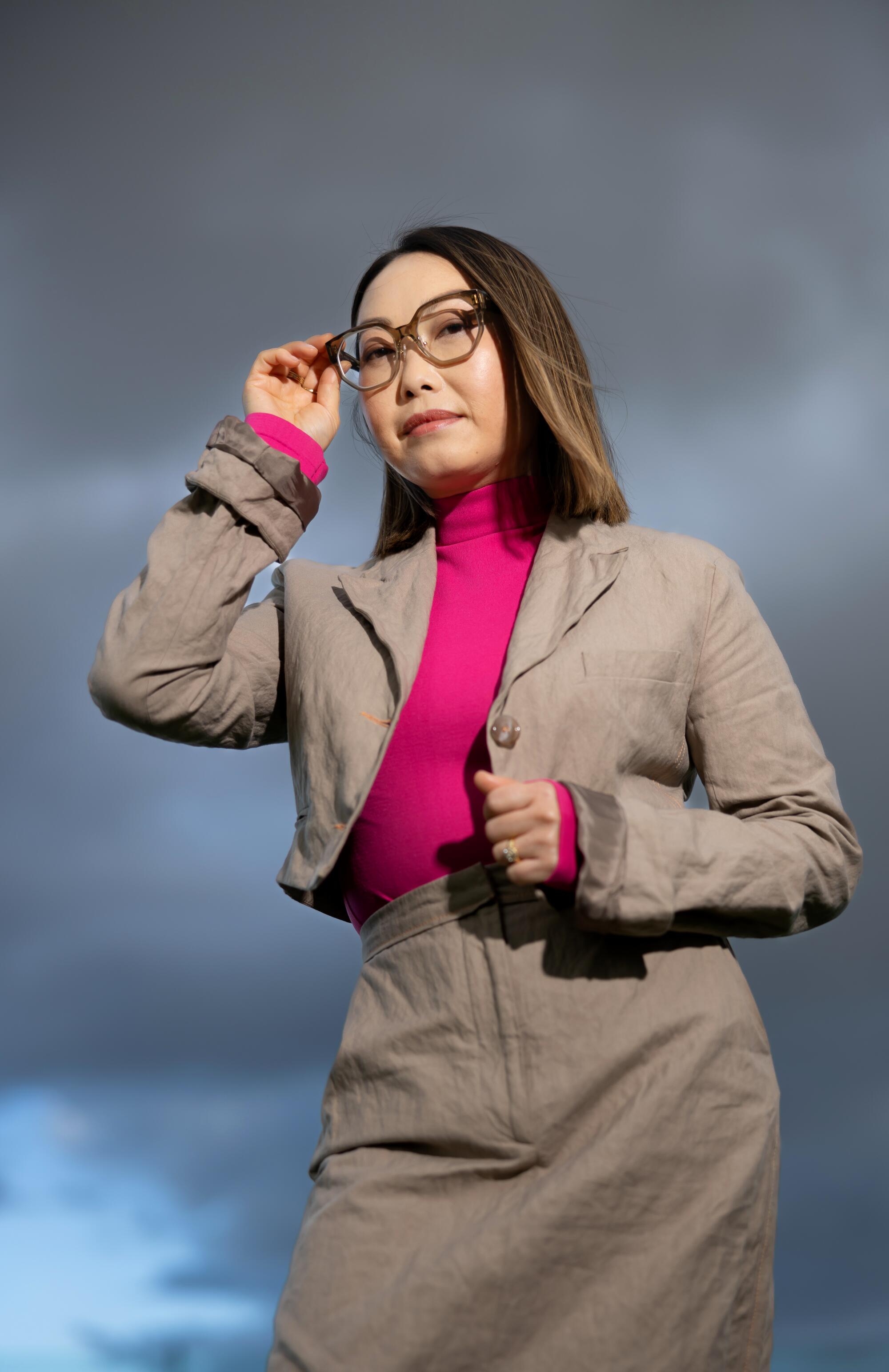
Before signing on to the series, Wang met with Lee in New York City, where the author lives. And in an atypical move, Wang invited Lee to join the show’s writers room, which led to Lee writing “Home,” the final episode of the series.
“A lot of writer-directors don’t want the novelist in [the writers’ room] because that can often be disruptive,” says Lee, adding that Wang was clear on the direction the series would take, but was open to feedback in that process. “I might not get this kind of special experience again, just in how collaborative and supportive it was.”
Under Wang’s direction, and with the help of a diverse all-women writers room, the series takes license with Lee’s work, breathing new life into minor characters whose backstories aren’t detailed or are ambiguous in “Expatriates.” For example, in the series, Margaret’s husband Clarke (Brian Tee) is Asian; Hilary is South Asian; and one of Mercy’s romantic interests is a queer woman. It fleshes out a world that feels rooted in the reality of Hong Kong’s nuanced politics around race and gender.
Blue, who is Indian American, says it was “thrilling” to get to portray the complex character Hilary, who is on a path to self discovery later in life and is wrestling with ideas of motherhood.
“The idea with women characters is often you’re 40, you’re basically dead. All you care about is either motherhood being married. It’s very one dimensional,” Blue says. “I feel so deeply aware of how rare it is, and so deeply grateful that I’ve had these opportunities. They happen because of South Asian and Asian writers, and because of writers of color, who are passionate about creating these characters and these dimensional human beings.”
A Hong Kong native of Korean descent who now lives in New York, Janice Y.K.
For Wang, these changes came naturally as writers were considering characters they related to. Vera Miao, a queer Taiwanese actor and filmmaker (“Two Sentence Horror Stories”), and Gursimran Sandhu, a Sikh Indian American writer-director (“Citadel,” “Fallout”), each wrote an episode of the series and lent their perspectives to craft the queer and South Asian experiences reflected onscreen, Wang says.
“I saw a real opportunity with Hillary’s [character] and I said, you know, let me find the writer who will help develop this, but I think it’s important to somehow address colorism in East Asia,” Wang says.
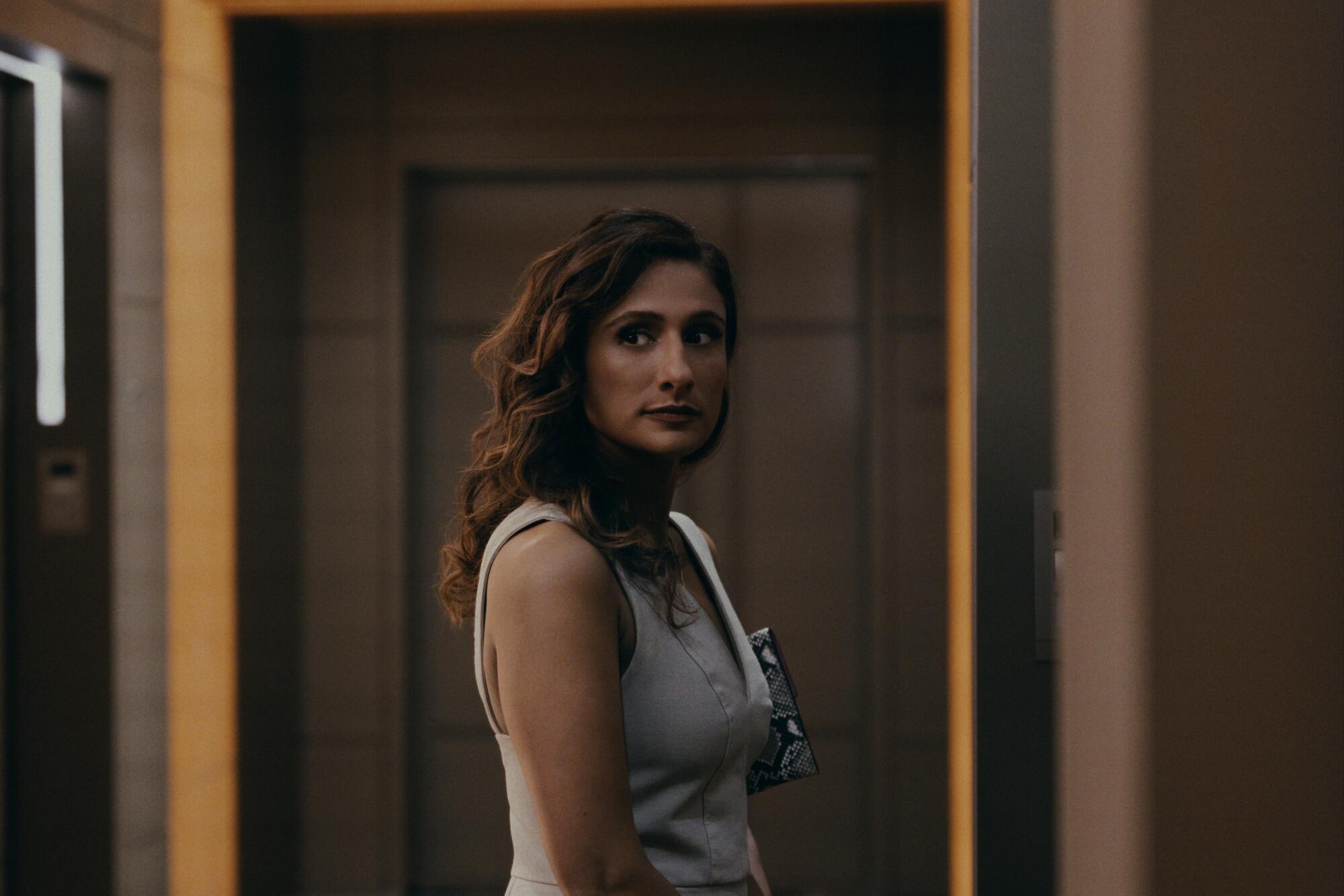
Each episode could stand alone as a short feature. But it’s the fifth episode, “Central,” that Wang brought with her to film festival circuits, earning buzz among critics and audiences. As a way to symbolize a different perspective, Wang chose to shift the aspect ratio to a much wider landscape view, and she centers the episode on Hong Kong natives and migrant Filipino houseworkers who sit at the periphery of the lives of wealthy American expats.
“I saw a real opportunity to both, of course, work with Nicole, who is such an incredible actor and an [executive producer], but also knowing that she told me that she would support my vision,” said Wang. “Because there’s no world in which somebody would give me the kind of resources to make a film about helpers in Hong Kong in a huge typhoon. We did some really big set pieces that required resources to center people who weren’t Nicole. It was incredible that Nicole gave me this platform to tell a story about expats, but then also to shed a spotlight elsewhere.”
Kidman tells me she was more than happy to lend her clout to produce and act in the series. She was drawn to the allure of Wang’s unconventional storytelling from the start.
“What I love about ‘The Farewell’ is that her stories are personal,” says Kidman over the phone. “So I knew would put her own stamp on this. She plays to her own rules; I’m very drawn to people like that.”
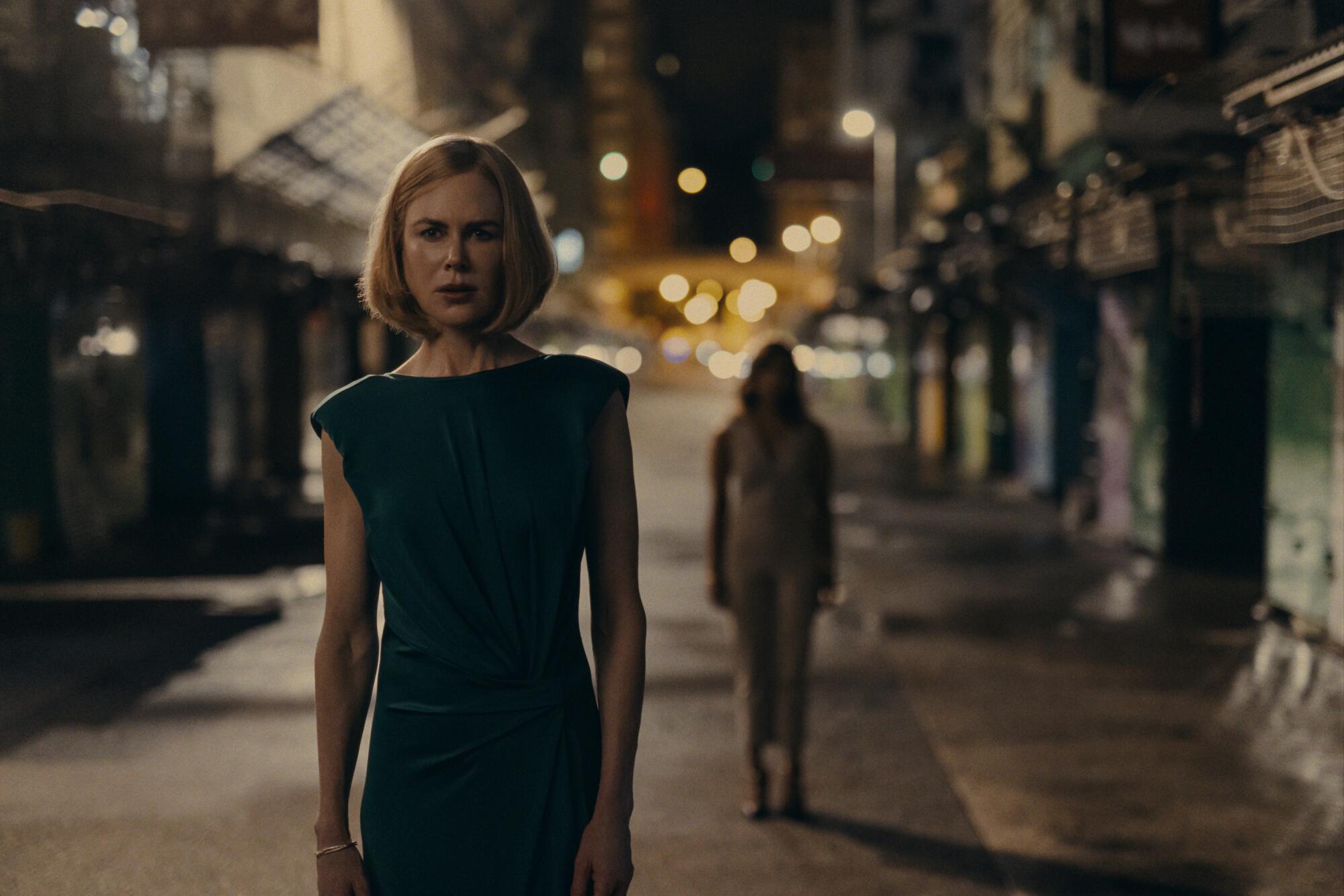
When Kidman calls, she’s in New York filming another feature, “Babygirl” with Halina Reijn. The actor says she’s intentionally working with female directors, to help foster the next generation of filmmakers and lend her clout to projects. For her, the challenges associated in collaborating with newer women auteurs is exhilarating and gratifying as well.
“I watched Lulu from the beginning to now and then; all of her filmmaking has changed and grown in a way because it was a massive undertaking six hours of this,” Kidman says.
A recent show most analogous to “Expats” is “The White Lotus,” Mike White’s HBO dramedy which satirizes the lives of privileged white tourists. The Emmy-winning series has been a hit, but it’s also been criticized for its depiction of native Hawaiians in its first season. A third season is in production in Thailand, and some Asian fans have voiced concerns it could depict Southeast Asian culture without nuance.
I ask Wang what she thinks about the show and the pitfalls of focusing on a wealthy elite that could exacerbate stereotypes and narratives. She admits she’s a fan of ”The White Lotus” and knows White personally.
“When you’re talking about something so specific like being a foreigner in a particular country, who is sort of directing the lens of that is important to look at because then you understand the context,” Wang says. “I just support people. It’s so hard to get anything made. Anything interesting and different … I just have a lot more grace for everybody and all of the things that are getting made because we just need art and we need more of it and we need as many perspectives as we can.”
Production for “Expats” took place in Hong Kong in 2021, and authorities were criticized for allowing Kidman and several crew members to bypass COVID-19 quarantine rules. Despite the hurdles and controversies, Wang is grateful that slowing down production allowed her time to reflect and hone the message she wanted to share. Wang says she’s hopeful that the lives of Hong Kongers were depicted accurately and thoughtfully, and that the series expands the conversation around identity.
“When we talk about diversity, it’s not through an American lens. It’s through a much more global lens because even Asian American as a category in America is challenging in many ways because it is a huge continent,” she says. “I want people to question more and leave with curiosity rather than with labels ... [or] projecting or broadcasting.”
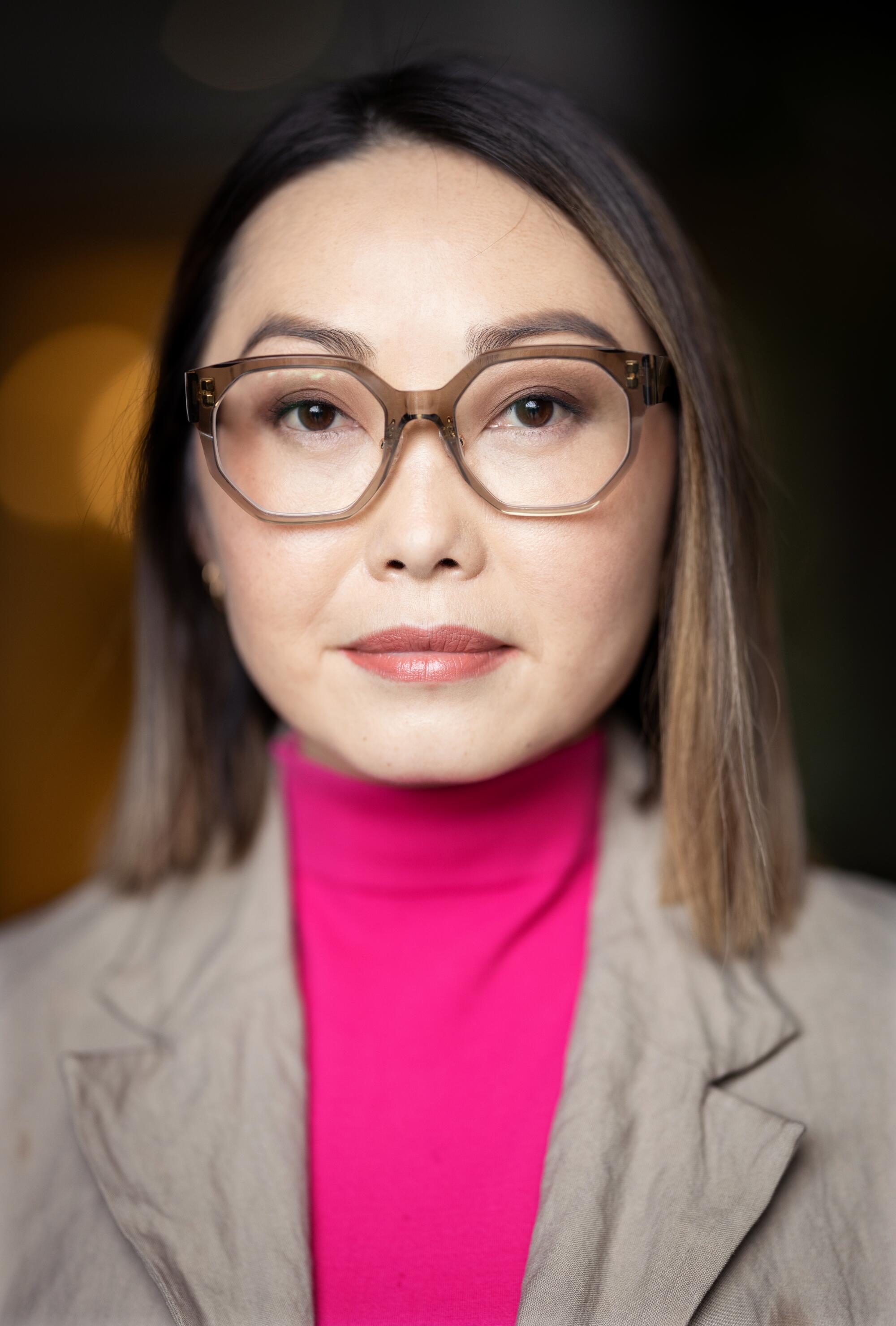
In “Expats,” the gulf between an expat and an immigrant is laid bare. But Wang complicates the typical portrayal of colonialism, class and race because the affluent aren’t just white and the locals aren’t hapless and looking for a way out.
“At every step of the process … we’re dealing with the intersection of race and class, I’m [focused on] not creating binaries: all the rich people are white and all the poor people are Asian, all of the rich people are bad,” Wang says. “I think that’s a really dangerous place to come from as a storyteller. I would go as far as to say, because my parents went through the Cultural Revolution that that’s propaganda. And so it’s really important to me to make sure that no character is fully good or wholly bad.”
Wang doesn’t consider “Expats” to be political, but she also doesn’t shy away from showing Hong Kong’s thorny politics, including the Umbrella Movement, pro-democracy protests that began in 2014 over proposed election reforms that have divided Hong Kong citizens and mainland China.
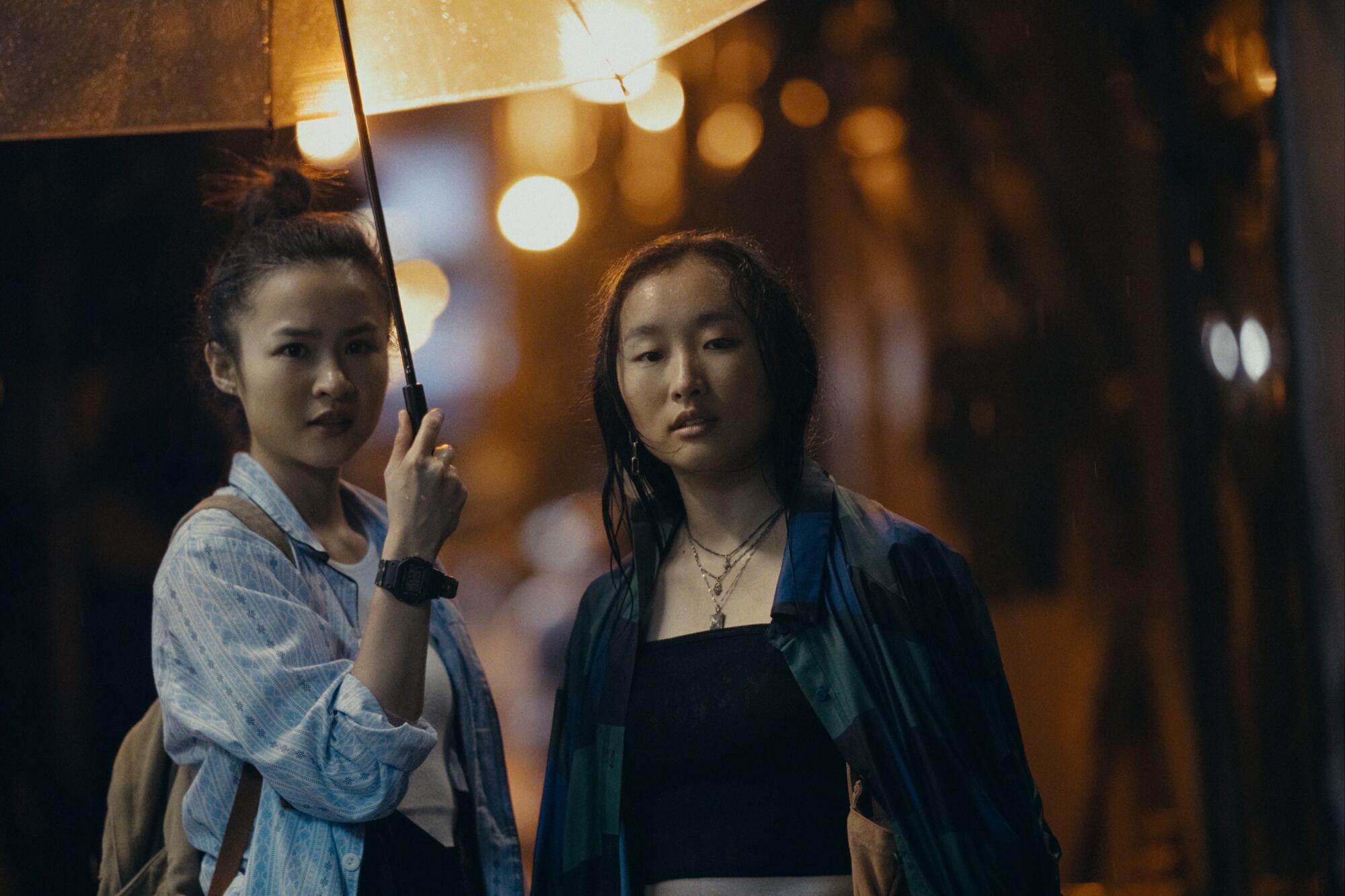
“There was a lot of fear around these yellow umbrellas,” Wang said of the props they used in the series. At one point, she says that in post-production, they considered color correcting the umbrellas into a less threatening shade of orange. “Something small can take on so much meaning … it rains all the time … then they became a practical tool for defense when there was tear gas and all of that. And so then that’s how it transitioned from a utilitarian tool to a symbol of the revolution.”
The loss threatening to engulf Margaret’s life is juxtaposed with the indifference of a city that has much bigger concerns as police are cracking down on students hosting sit-in street protests. The shift in Hong Kong’s government is signposted by a scene in the last episode where workers on bamboo scaffolding remove a neon sign, a mainstay of Hong Kong’s visual identity. There is a palpable sense of nostalgia for a city that is changing beyond recognition.
Wang is no stranger to that history herself. Her father was a Chinese diplomat to the USSR and her mother was an editor at a literary magazine before they moved to the U.S. after the Tiananmen Square massacre in 1989. In Hong Kong, Wang is an American, an outsider, but she’s still privy to the conversations around her as a native Mandarin speaker, an insider. Like Wang’s family, my mother and her family left Hong Kong in 1987, a decade before the island was returned to China after more than 150 years under British rule.
What defines this city? Is it the people? Its borders? In “Expats,” Wang interrogates these questions about Hong Kong.
“I think in recent years, for me, I’ve really seen Hong Kong defined because so many people have left so you can’t say that it’s defined by those borders,” Wang says. “I really connected to the spirit of Hong Kong and wanted to make sure that I was able to translate that and I do think that that’s what initially intrigued me about the project was the resilience of Hong Kong as a parallel to the resilience of these women.”
Wang recognizes it’s her ability to be both inside and outside Hong Kong’s discourse that allows her to glamorize the daily realities of locals. Margaret rents out a secret apartment to escape from the pressures of motherhood. And every time she exits her building, she sees two mops dramatically lit and crisscrossed in an archway. They’re the same mops we see another Hong Kong local use to clean the floors of a grocery store before closing shop. It’s a motif that Wang says represents the struggle of the working class and shows how intimate an international city can be.
“We’re on this big Hollywood set and [our cinematographer and set design] would be like, ‘No we need to talk, the mops are really important,’” Wang said. “It goes to show that what you declare to be important becomes important. And that’s symbolic of everything.”
The director effectively treats Hong Kong as another main character. The upheaval of protests and the mounting chaos of the women’s stories rise in unison with the typhoon that threatens to engulf the maritime port city. Just as they were attempting to portray an unruly city, the weather often wouldn’t cooperate.
“I [would see] the typhoon coming. I was like, ‘Yes! It’s perfect!’ They were like, ‘No.’ When it gets to the level that is perfect for the film it is not safe to shoot,” Wang says. “I made this chart of numbers. What’s the level of rain and what’s the level of wind for every scene?”
Wang is meticulous and precise, and it’s easy to understand why she’s been given so much responsibility — people trust her.
At the end of the interview, I ask Wang a question about her relationship with her partner, the Oscar-winning filmmaker Barry Jenkins. I’m a fan of his work as well; do people ever think about her and Barry Jenkins as a power couple?
“If they really knew us, they would know that the word power is nowhere near our lexicon,” she says with a laugh. “We’re just very goofy people. We are students of cinema. We love people who are students of art of any kind and we want to support them. And we don’t really concern ourselves with these questions around power.”
Since the success of “The Farewell,” Wang has been working nonstop on “Expats,” and now that it’s about to premiere, she’s trying to prioritize rest. But one thing is certain: she believes her job as a storyteller is to pay attention to stories that are most effective and powerful in addressing suffering. And that is where she wants to wield her influence.
“There is a lot of conflict, and as somebody who has always been raised as the mediator both within my own family as well as between cultures, that is something that I think about a lot,” says Wang. “Art has to be subversive particularly at this moment in time. You have to say something.”
More to Read
The complete guide to home viewing
Get Screen Gab for everything about the TV shows and streaming movies everyone’s talking about.
You may occasionally receive promotional content from the Los Angeles Times.



